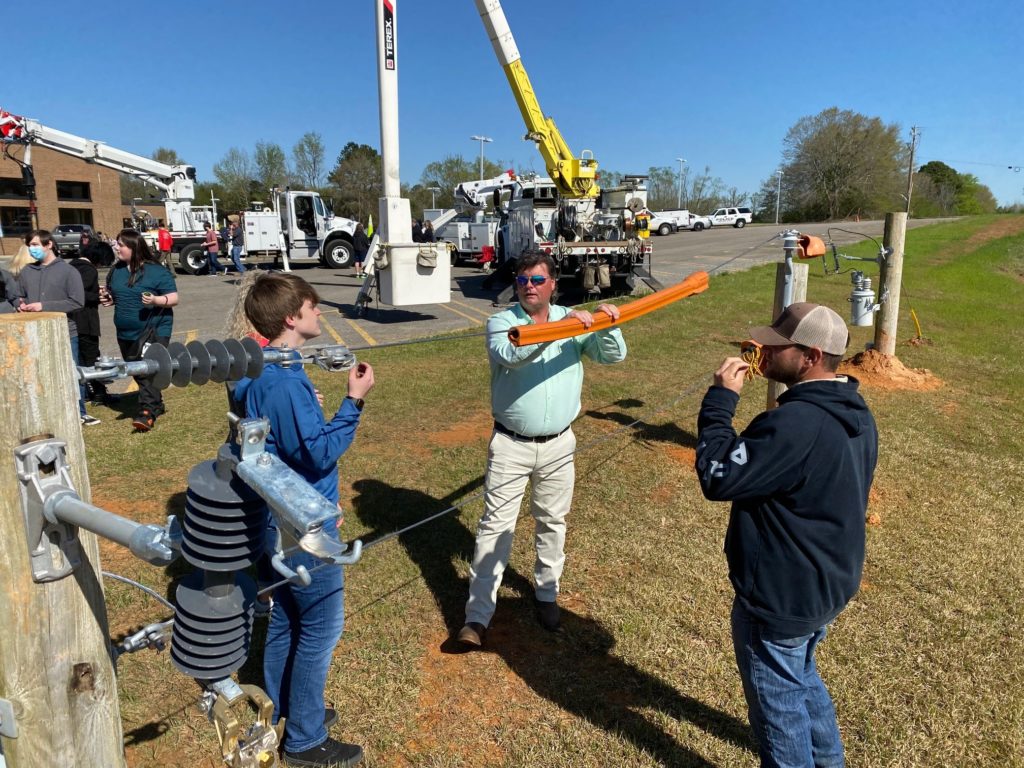
A northern Alabama trade school has long prepared teens for jobs ranging from auto mechanic to hairstylist. Now, thanks to a partnership with the local electric cooperative, high schoolers will be able to train this fall for one of the country’s fastest growing career paths: broadband fiber technician.
Driven by member growth, the demands of its new broadband subsidiary and the lack of internet access in much of rural America, Cullman Electric Cooperative worked with the Cullman Area Technology Academy to develop a new curriculum that covers fiber installation skills and electric linework training.
“Building and maintaining our electrical infrastructure along with the fiber-optic cable and broadband equipment that power Sprout Fiber Internet requires skilled and well-trained men and women,” said Tim Culpepper, CEO of the Cullman-based co-op.
The program “will prepare students for good-paying jobs that are in high demand both locally and across the country and will help meet Cullman Electric’s workforce needs into the future.”
Students who successfully complete the full-semester program will leave as certified fiber optic technicians with credentials from the National Center for Construction Education and Research and CPR certification.
“This course will allow students to enter the workforce with the fundamental skills needed to further their education through work-based training or in a pre-apprenticeship program,” said Brian Lacy, Cullman Electric’s manager of communications and external affairs.
The co-op is donating $80,000 to CATA to fund modern broadband and lineworker training gear, including fiber splicers and personal protective equipment. Half the donation comes from a matching grant by the Tennessee Valley Authority for COVID-19 response programs.
Cullman Electric also plans to have co-op engineers, lineworkers and fiber techs share their knowledge with students in hands-on lessons at the co-op’s training facility.
Lacy said a key goal for the co-op is to incentivize qualified technicians to join its fast-growing fiber subsidiary, which launched in July 2020 and will soon complete its phase-one buildout to 12,000 co-op members.
In Cullman’s territory, the median annual salary for a power lineworker is about $65,000. It’s about $45,000 for an entry-level broadband fiber technician.
“We want the kids growing up here to have the opportunity to stay here and raise a family here and feel confident that they can have a good-paying job and work for a great company,” he said. “But it’s not just about meeting our needs. The program will provide students with skillsets in demand nationwide for years to come.”
The program is open to local high school juniors who apply and do well in a screening interview.
Cathy Cash is a staff writer for NRECA.